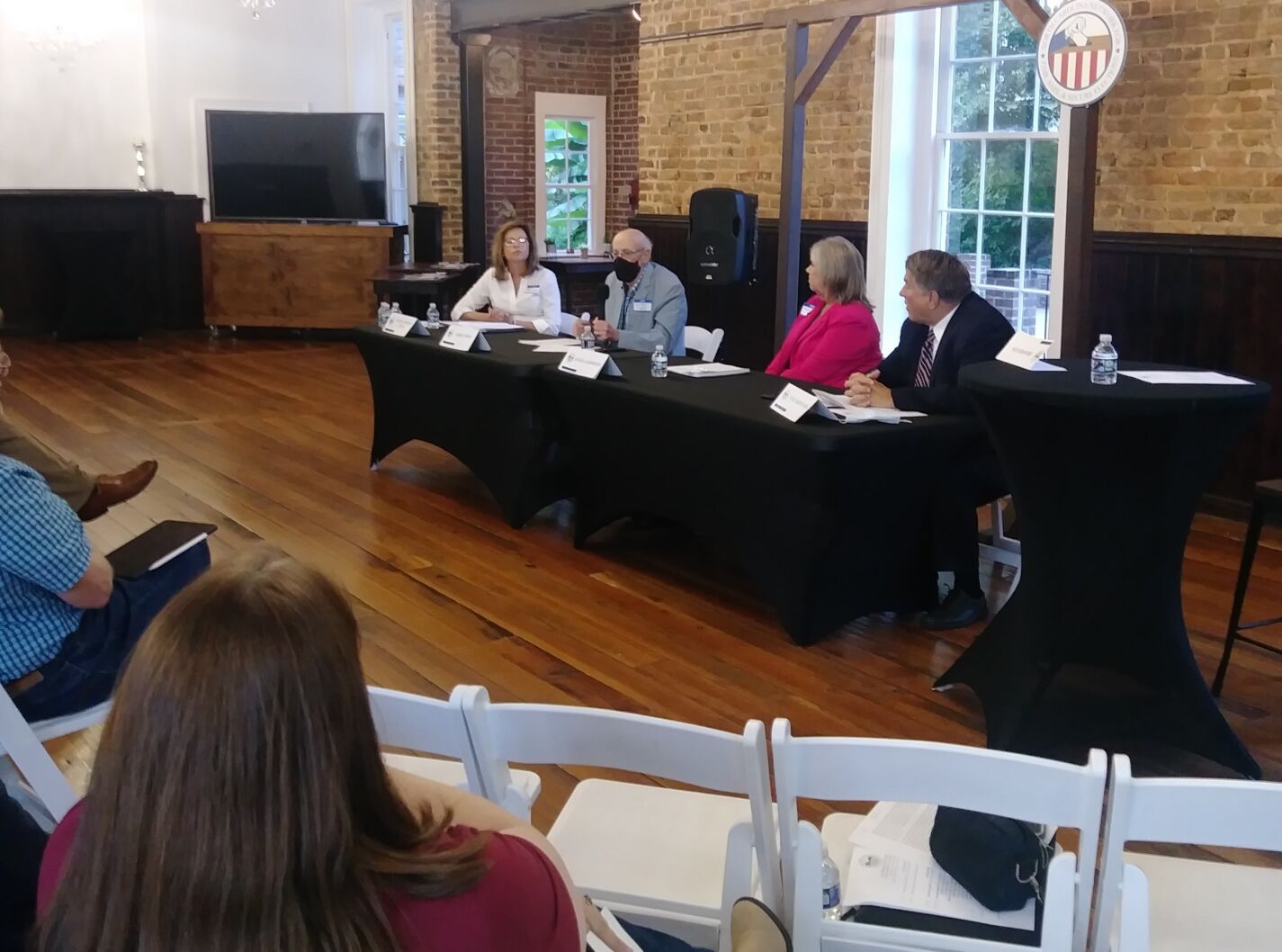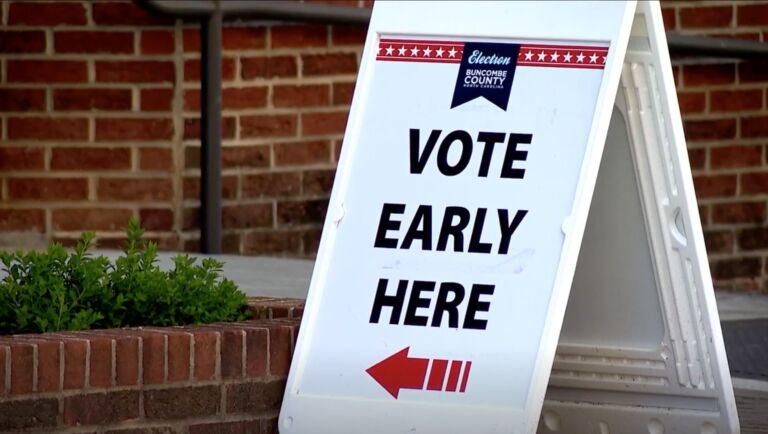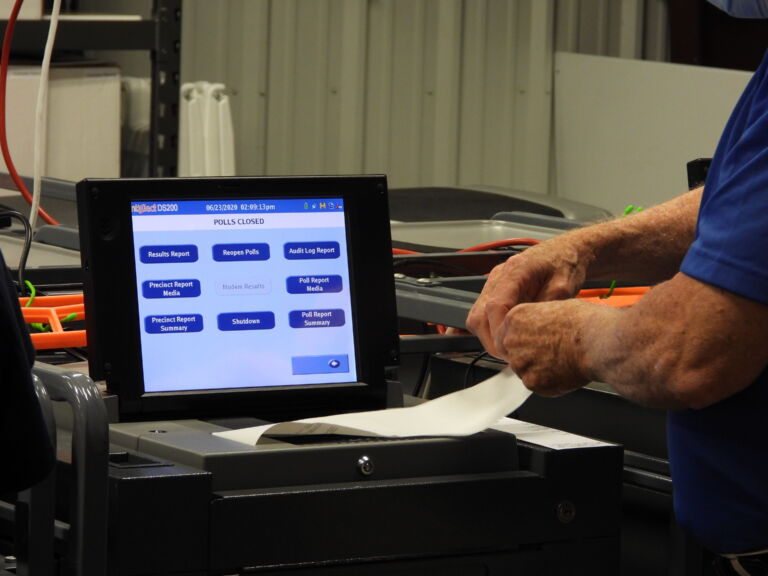North Carolinians are hearing from election officials and leaders from both major political about why they can have confidence in North Carolina’s elections.
The bipartisan effort is called the Trusted Elections Tour and is backed by the Carter Center, a philanthropic organization perhaps best known for observing elections in Africa, Asia, and Latin America. Its North Carolina effort is led by Democratic former Charlotte Mayor Jennifer Roberts and unaffiliated former North Carolina Supreme Court justice Bob Orr (who was a Republican until he left the party in 2021).
The Tour’s Kickoff Meeting
The meeting in Wake Forest was relatively well-attended, with about 32 people in the audience in addition to those associated with the Trusted Elections Tour and one police officer.
The event was moderated by former North Carolina House Speaker Pro Tempore Paul “Skip” Stam (Disclosure: Stam is a member of the John Locke Foundation’s Board of Directors.) and provided a wealth of information on election procedures, law, and cybersecurity.
There were three panels in the Wake Forest event:
- Election administration with Democratic Wake County Board of Elections member Gerry Cohen, Republican Wake County Board of Elections member Angela Hawkins, and North Carolina State Board of Elections Deputy Director for Election Administration Trena Parker Velez.
- North Carolina State Professor of Computer Science Brad Reaves performed a one-man clinic on cybersecurity.
- Election law with conservative attorney Phil Strach and progressive attorney Caroline Mackie.
State Board of Elections Public Information Officer Patrick Gannon also explained elections board policy on several issues.
All the panelists took questions from both Stam and the audience. The process was as lively as you could expect panel discussions to be and became heated a couple of times as audience members pressed the panelists on some questions.
Jim Womack, head of the North Carolina Election Integrity Team, recorded the event and posted the video on Facebook.

These are the Stakes
Elections in North Carolina are not a hellscape of rampant, unchecked fraud and open corruption that make voting a superfluous exercise. Even President Trump endorsed how the election in North Carolina went, saying, “North Carolina produced a big victory for us, without a fraudulent outcome—missing ballots, illegal voting, dead people voting, and all of the other Democrat tricks.” There are problems with how elections are run in our state (as I have shared), but those are particular imperfections that can be fixed with focused changes to laws, regulations, and practices.
So why do leaders in both parties feel it is important to remind people of that?
A republic only works if people believe their collective votes matter. The problem is that many believe their votes do not count because they believe the system is corrupt. While that view is associated with the political right these days, an Elon University poll in 2019, just after the alleged ballot trafficking in the 2018 9th Congressional District race, found the opposite:
Responses varied greatly along party and racial lines. Sixty-one percent of Democrats said election fraud was a “major problem,” compared to 46 percent of independents and 44 percent of Republicans. Black voters and other minority voters were much more likely to say it was a “major problem” than white voters.
Without faith in our elections, we cannot have faith in any of our government institutions. That is a prescription for the collapse of our republic.
Leaders in both parties also have a stake in assuring supporters that their votes matter. They want to avoid cases like that of Craig Roland, who skipped voting in the Georgia runoff elections for US Senate in January of 2021:
“What good would it have done to vote? They have votes that got changed,” Roland said. “I don’t know if I’ll ever vote again.”
If attitudes like that take hold, it will be bad for the parties and, ultimately, bad for America.
Future Stops on the Trusted Elections Tour
The Trusted Elections Tour is holding events in fourteen locations across the state, one in each congressional district, through October 6. They will also hold an online meeting on September 19. Go to the Trusted Elections webpage for locations and times.


